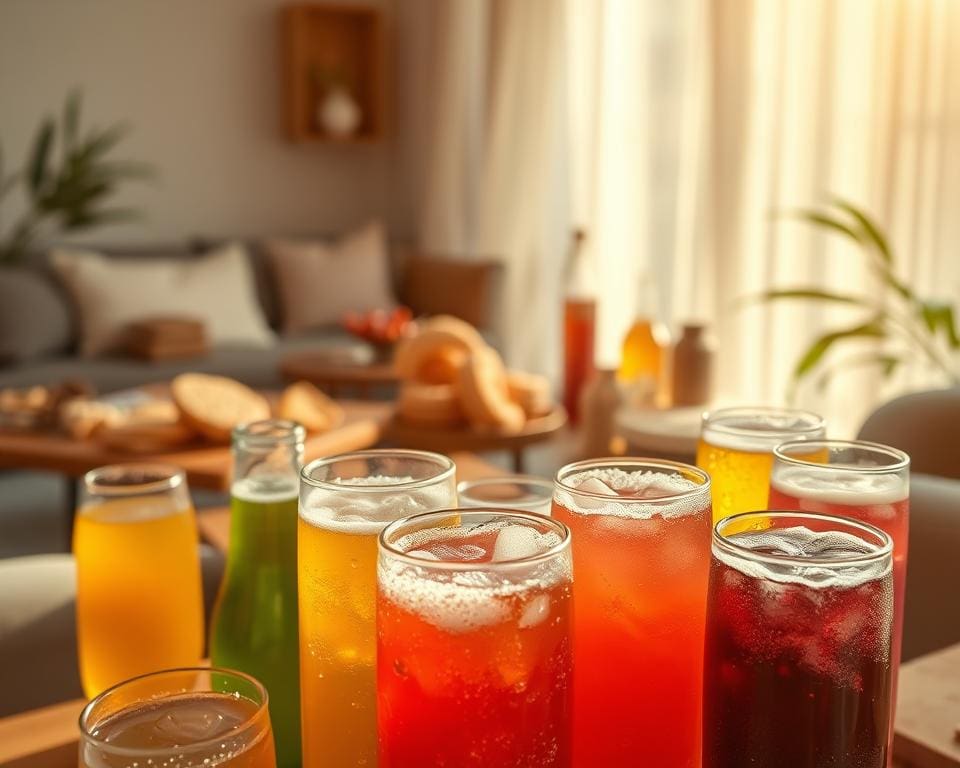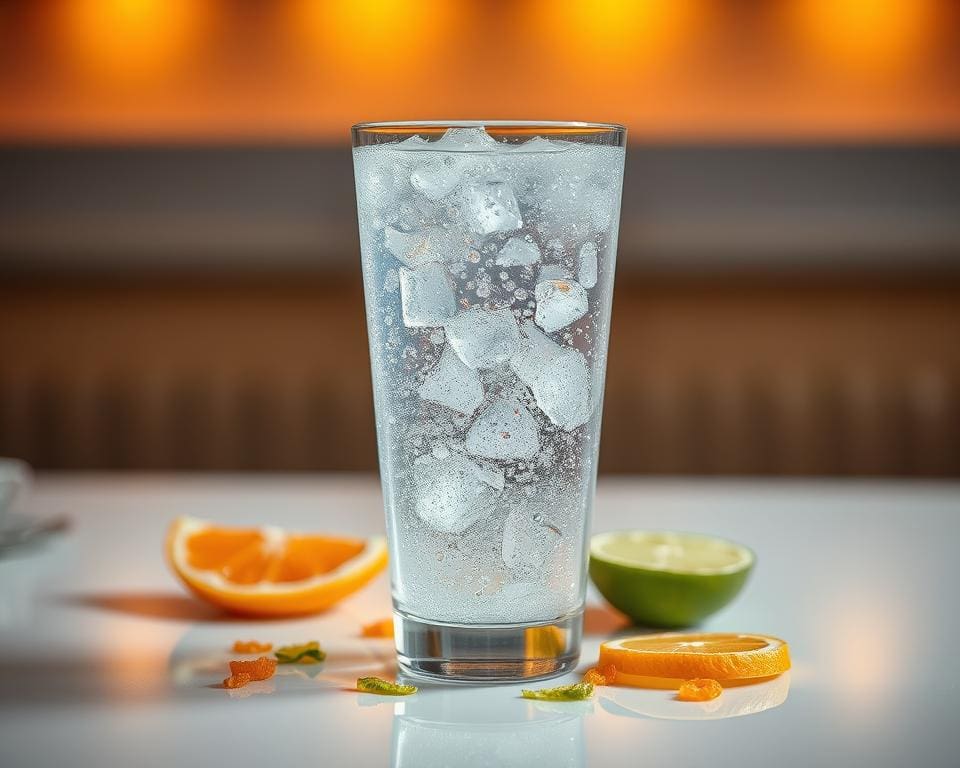The allure of fizzy drinks can be hard to resist, leaving many to ponder, “Why am I craving fizzy drinks?” These carbonated beverages, known for their refreshing fizz and sweet flavour, often become a habitual source of energy and satisfaction for many individuals. The combination of sugar and carbonation provides a sensory pleasure that can be deeply satisfying, yet also leads to persistent fizzy drink cravings. Understanding the reasons behind this craving is essential to navigating what can sometimes feel like a fizzy drink addiction. This article delves into the psychological, physiological, and emotional triggers behind such cravings, aiming to provide practical insights for those seeking clarity.
Understanding Fizzy Drink Cravings
Fizzy drink cravings often stem from a combination of factors that influence both our physical and mental states. The addictive nature of these beverages can be linked primarily to their high sugar content and caffeine. Understanding these causes of craving fizzy drinks can help in managing and even overcoming these urges.
The Role of Sugar in Cravings
One of the primary drivers behind sugar cravings is the body’s response to sweet flavours. When high levels of sugar are consumed, the brain releases dopamine, a chemical associated with pleasure. This cycle can lead to increased cravings for sugary beverages, as each intake reinforces the desire for more. Over time, these repetitive sugar cravings create a dependency that can be difficult to break.
Effects of Caffeine on Your Body
In addition to sugar, many fizzy drinks contain caffeine, which can have varying effects on the body. Initially, caffeine provides a temporary energy boost and increased alertness. As the effects wear off, a rebound fatigue may occur. This fatigue often leads to a desire for more caffeine, thereby intensifying cravings for fizzy drinks. Understanding caffeine effects is crucial for those looking to reduce their intake, as it plays a significant role in the vicious cycle of dependence.

Why Am I Craving Fizzy Drinks
Understanding the cravings for fizzy drinks requires examining the underlying psychological triggers that often contribute to these desires. People frequently experience psychological cravings during specific situations, such as stress, boredom, or social gatherings. These contexts can create an emotional connection that compels individuals to reach for a fizzy drink as a form of solace or enjoyment.
Psychological Triggers Behind Cravings
During challenging times, many turn to fizzy drinks for comfort. These drinks often fulfil a deep-seated need to escape from reality or momentarily ease discomfort. Emotional triggers can manifest as a desire for sweetness or fizz, which might provide instant pleasure and distract from negative feelings. Recognising these associations is the first step towards gaining control over cravings.
The Influence of Habitual Consumption
Alongside psychological factors, habitual consumption significantly shapes our desire for fizzy drinks. Repeatedly choosing these beverages in certain scenarios can condition the brain to expect them as a response to specific cues. This cycle reinforces the craving, as the body learns to associate fizz with emotional relief. By consciously challenging these patterns, it becomes possible to break free from cravings and foster healthier choices.
Causes of Craving Fizzy Drinks
Understanding the underlying causes of fizzy drink cravings can help inform better dietary choices. Nutritional deficiencies often play a significant role in influencing these cravings. Individuals may turn to fizzy drinks as a quick solution to mitigate the effects of lacking essential nutrients. At the same time, emotional and psychological factors can heavily contribute to these cravings, creating a cycle of stress eating.
Nutritional Deficiencies and Their Impact
Nutritional deficiencies, particularly in minerals like magnesium or important electrolytes, can increase the desire for sugary carbonated beverages. The body seeks energy sources when it lacks these nutrients, making fizzy drinks an appealing choice. Understanding this link offers insight into how properly nourishing the body can reduce cravings over time.
Stress and Emotional Eating Patterns
Stress eating emerges as a common response to emotional triggers, with many individuals gravitating towards fizzy drinks for comfort. These beverages provide an immediate sense of relief, although the effect is often temporary. Recognising this pattern can help people develop healthier coping mechanisms rather than resorting to sugary drinks when faced with emotional challenges.
Fizzy Drink Addiction: Signs and Symptoms
Fizzy drink addiction can manifest in various ways, often making it difficult for individuals to recognise their dependence. Understanding the signs of addiction plays a critical role in addressing this issue. People may consume fizzy drinks compulsively, ignoring the potential negative impacts on their health and well-being.
Identifying the Signs of Addiction
Several signs of addiction can indicate a growing dependence on fizzy drinks. Common indicators include:
- A voracious desire for fizzy drinks, reaching for them immediately when craving something to drink.
- Feelings of guilt after consumption, especially when recognising that it might not be beneficial for one’s health.
- An inability to reduce intake despite wanting to, showcasing the struggle against fizzy drink addiction.
- Ignoring negative consequences such as weight gain or dental issues to continue the habit.
Fizzy Drink Withdrawal Symptoms
When attempting to cut back on fizzy drinks, individuals may experience withdrawal symptoms. These effects can serve as reminders of their addiction and make the transition challenging. Common withdrawal symptoms include:
- Headaches, often caused by a reduction in sugar and caffeine intake.
- Fatigue, leading to a decrease in energy levels as the body adjusts.
- Irritability, making it tough to cope with daily stressors during the withdrawal phase.
Recognising these signs of addiction and withdrawal symptoms is essential for anyone looking to break free from fizzy drink addiction and lead a healthier lifestyle.
How to Stop Craving Fizzy Drinks
Overcoming cravings for fizzy drinks can be a transformative journey. Employing effective strategies can significantly support your goal of reducing fizzy drink cravings. Implementing these approaches ensures that you develop healthier habits while enjoying delicious alternatives.
Effective Strategies to Reduce Cravings
Start by gradually decreasing your consumption of fizzy drinks instead of cutting them out entirely. This gradual approach helps your body adjust to lower sugar levels without dealing with withdrawal symptoms. Incorporating mindful eating practices, such as recognising emotional triggers, can be instrumental in managing cravings effectively. Stay hydrated by drinking plenty of water throughout the day, as thirst can often be confused with a desire for sugary drinks.
Healthy Alternatives to Fizzy Drinks
Explore healthier alternatives that can satisfy your cravings without compromising your health. Infused water, featuring fruits and herbs, makes a refreshing substitute. Herbal teas can provide a warming and comforting experience, offering flavours without the fizz. Invest in sparkling water, which delivers a bubbly sensation without the added sugars, allowing you to enjoy the experience of fizzy drinks without the guilt. Adopting these healthy alternatives not only supports your journey on how to stop craving fizzy drinks but fosters a healthier lifestyle overall.
Creating a Healthier Lifestyle
Transitioning to a healthier lifestyle is an empowering journey that requires commitment and dedication. By consciously replacing fizzy drink habits with nourishing alternatives, individuals can make significant strides towards maintaining cravings. Opting for hydration through herbal teas or infused water not only quenches thirst but also nourishes the body. These lifestyle changes set the foundation for improved health and vitality, making it easier to resist the impulse for sugary beverages.
Setting realistic goals is crucial in this process. Gradually decreasing the consumption of fizzy drinks while introducing more wholesome foods can lead to sustainable shifts that benefit overall well-being. Tracking progress helps to maintain motivation, allowing individuals to celebrate small victories along the way. Engaging in regular physical activities, such as walking or cycling, complements these dietary adjustments, enhancing energy levels and mood.
Community support can amplify the effects of these lifestyle changes. Participating in health groups or fitness classes fosters a sense of camaraderie and provides valuable encouragement. Surrounding oneself with others who share similar aspirations not only strengthens resolve but also creates a positive environment for maintaining a healthier lifestyle. Ultimately, these shifts contribute to a more vibrant life, reducing dependence on fizzy drinks and cultivating overall wellness.









